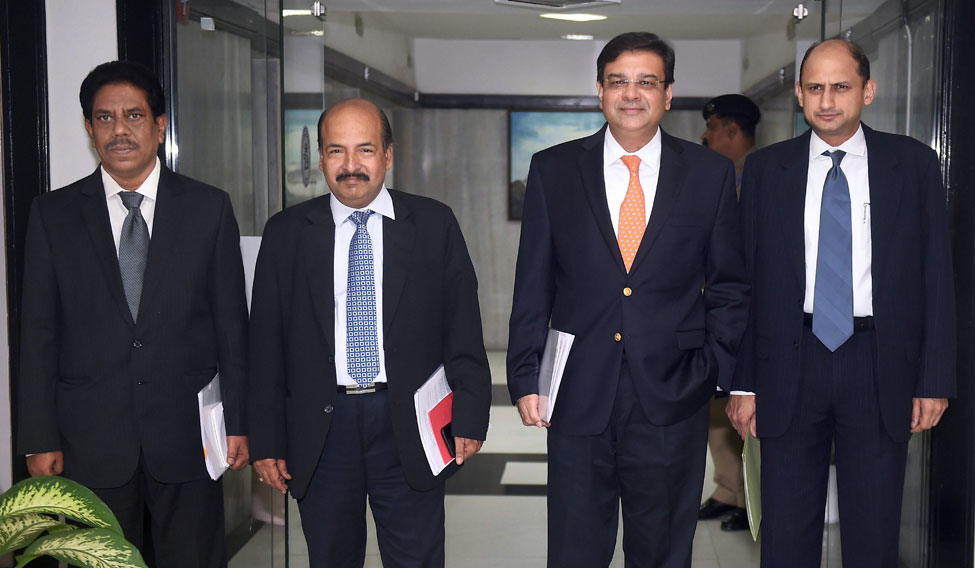The Reserve Bank of India on Wednesday expectedly left its key repo rate unchanged at 6 per cent. It also raised its inflation forecast and said there were several developments including further pressure on crude oil prices and government's announcement in the Budget to hike minimum support price on agriculture produce, it would monitor over the next few months to determine future course of action.
Economists had expected the central bank to pause in its last bi-monthly monetary policy for the financial year-ending March 2018 and see rates largely unchanged through 2018, although rates could be hiked if inflation persistently stays over RBI's forecast.
In the December monetary policy meeting, RBI had projected consumer price index (CPI) inflation in 4.3-4.7 per cent range in the second half of 2017-18. It is now expecting inflation at 5.1 per cent in the fourth quarter (January-March), in the wake of rising crude oil prices and less than usual moderation in seasonal winter food prices.
For 2018-19, it has baked in CPI inflation at 5.1-5.6 per cent in the first half and 4.5-4.6 per cent in the second half.
“The MPC (monetary policy committee) took note of some upside risks; the impact of HRA (house rent allowance) by various state governments on headline inflation, further pressure on crude oil and commodity prices, union budget proposals on minimum support prices for kharif crops and the increase in customs duty on number of items, the impact of fiscal slippages on inflation and broader macro financial implications notably on economy-wide costs of borrowing,” said RBI Governor Urjit Patel.
Even as the inflation expectation has been increased, economists were surprised that the tone was not hawkish as was being expected prior to the policy announcement. That suggests that the central bank is unlikely to hike interest rates any time soon, and will rather wait for the data points it has flagged to evolve.
“The monetary policy was far less hawkish than expected given that RBI’s inflation target had been busted, fiscal limits breached and uncertainty on critical prices such as oil and local food prices (specifically the MSPs of procured food items) has multiplied. Not only did the stance remain neutral, there were no indications of an imminent rate hike by the RBI,” noted Abheek Barua, chief economist at HDFC Bank.
Credit rating agency, ICRA's principal economist Aditi Nayar also feels the MPC would prefer to wait for additional data and is unlikely to tighten rates in the immediate term.
“However, if inflation exceeds the MPC's forecasts in a sustained manner, a rate hike towards the second half of 2018 may not be ruled out,” added Nayar.
Analysts say, RBI maintaining a “neutral” stance will help contain the rally in bond yields for now. On Wednesday, bond yields fell to 7.54 per cent from 7.60 per cent before the policy and 7.57 per cent on Tuesday. They were at around 7.40 per cent end of December.
“Bonds were pricing in 50-75bps rate hike in FY 2019, some of which can get unwound,” said Kunal Shah, fund manager – debt, Kotak Mahindra Life Insurance.
Sonal Varma, chief India economist at Nomura Securities believes that RBI's statements on Wednesday suggest the central bank is growing more confident on the growth recovery, although inflationary concerns are also rising.
“We expect the RBI to leave rates on hold through 2018 because of an ample real rate cushion. Having said that, government policies on food (trade policy changes and the new MSP formula) signal upside risks to food inflation,” said Varma.






